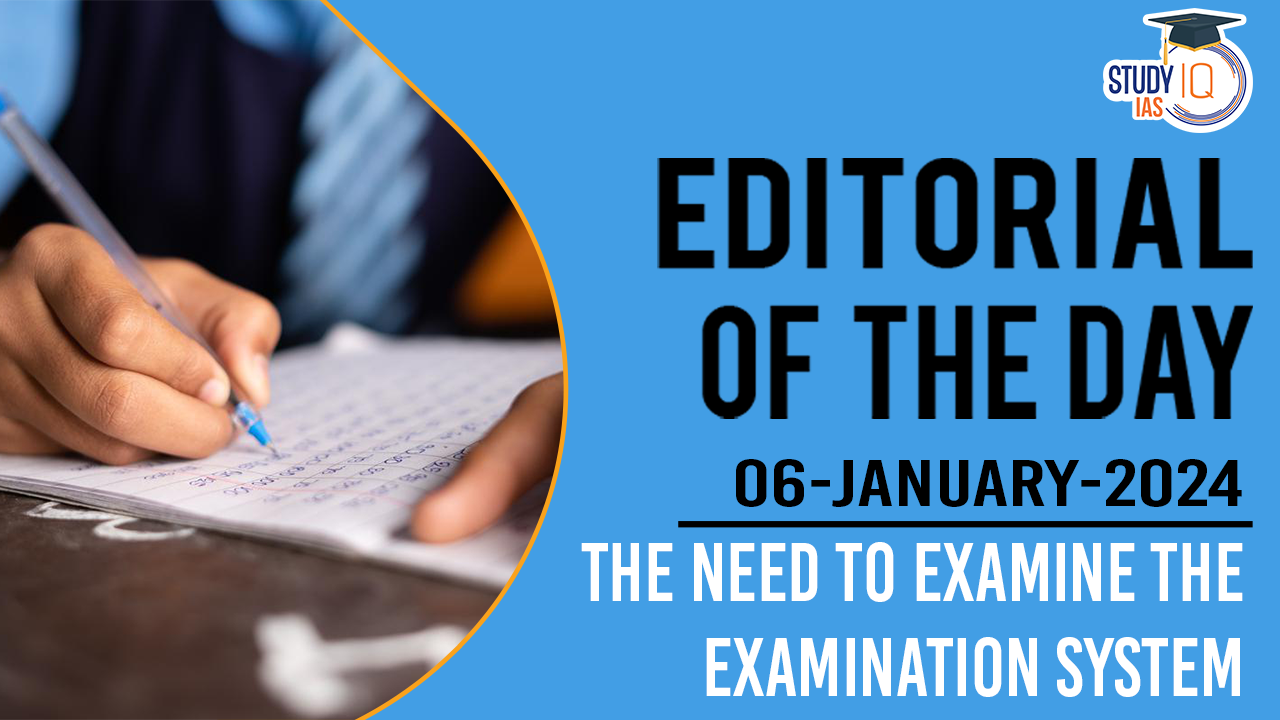Table of Contents
Context: The article discusses the challenges in the education system in India that need to be addressed.
Current Number Of Colleges, Universities and School Boards in India
- India has more than 1,100 universities and 50,000 affiliated colleges including 700 autonomous colleges. This includes a total enrolment of 40.15 million students.
- There are also 60 school boards for secondary and higher secondary levels of school education, certifying more than 15 million students every year.
We’re now on WhatsApp. Click to Join
Issues with the Examination System In India
- Emphasis on Memorization: Students are often evaluated based on their ability to recall information, leading to a focus on memorization rather than the application or critical analysis. This results in an educational approach that prioritises learning by rote over deeper understanding.
- Limited Goals: The educational system has become overly fixated on high scores and pass rates as its primary goals, rather than fostering a comprehensive understanding of subjects.
- Concerns About Question Paper Quality: Instances of linguistic mistakes, conceptual misunderstandings, and the inclusion of irrelevant or non-challenging questions are reported, which do not encourage advanced cognitive skills.
- Inadequate Evaluation Methods: Despite the need for graduates to possess advanced cognitive abilities for employment, current examination methods do not adequately measure these skills.
- Expansion of Tutoring Services: The rigorous hiring evaluations conducted by employers have given rise to a specialised market for preparatory courses for competitive exams and skills development.
- Neglect of Guidelines: Educational institutions frequently disregard detailed recommendations for curriculum development, teaching methods, and exam procedures due to a lack of consistent and effective regulation.
- Variability in Exam Standards: The autonomy granted to colleges limits regulatory bodies’ control over these institutions and their examination standards.
- Confidentiality Concerns: The secrecy surrounding exam procedures, from the creation of questions to the grading of tests and the issuance of grades, can lead to malpractices due to inadequate monitoring and auditing.
Step To Take To Address the Challenges in the education system in India
- Establishment of Robust Evaluation Methods: Develop an assessment system that accurately reflects students’ understanding and skills.
- Collaboration with Experts: Encourage active participation from professional organisations in shaping curriculum and instructional strategies.
- Enhancement of Transparency: Ensure the integrity of educational standards by making teaching and assessment processes transparent, including student access to evaluations and effective complaint resolution mechanisms.
- Clear Learning Objectives: Define and implement clear minimum learning outcomes to guide educational achievements.
- Inclusive Assessment Practices: Shift from a teacher-centric evaluation to a more collaborative process that includes student feedback on teaching, promoting accountability.
- Integration of Technological Tools: Adopt technology to streamline and standardise the creation and marking of exams, bolstering their reliability.
- Independent Review of Evaluation Frameworks: Conduct external audits on the assessment systems of academic institutions, with a focus on transparency, dependability, and uniformity, and publish these findings.


 GPS Spoofing and Its Impact in India: A ...
GPS Spoofing and Its Impact in India: A ...
 Amrit Gyaan Kosh Portal: A Comprehensive...
Amrit Gyaan Kosh Portal: A Comprehensive...
 UpLink Initiative: Launched by World Eco...
UpLink Initiative: Launched by World Eco...





















